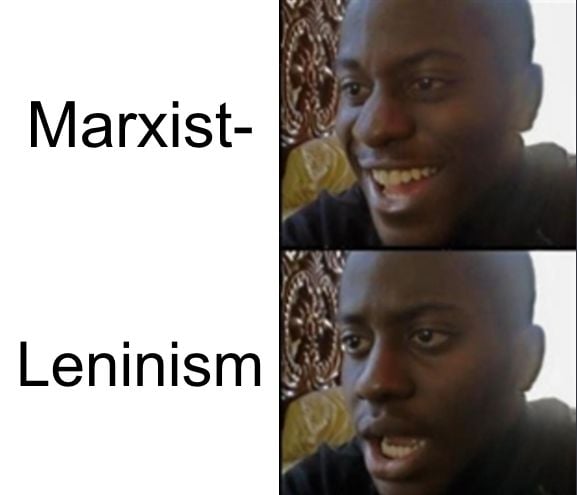211
you are viewing a single comment's thread
view the rest of the comments
view the rest of the comments
this post was submitted on 02 Aug 2024
211 points (92.4% liked)
Political Memes
8957 readers
2271 users here now
Welcome to politcal memes!
These are our rules:
Be civil
Jokes are okay, but don’t intentionally harass or disturb any member of our community. Sexism, racism and bigotry are not allowed. Good faith argumentation only. No posts discouraging people to vote or shaming people for voting.
No misinformation
Don’t post any intentional misinformation. When asked by mods, provide sources for any claims you make.
Posts should be memes
Random pictures do not qualify as memes. Relevance to politics is required.
No bots, spam or self-promotion
Follow instance rules, ask for your bot to be allowed on this community.
No AI generated content.
Content posted must not be created by AI with the intent to mimic the style of existing images
founded 2 years ago
MODERATORS

A reduction in population to return to numbers we thrived in, so that you are once again in a society of just 50 or so others working like a single organism, all with value and purpose. A pack, a tribe, a village, a community; whatever you want to call that instilled natural concept we do well in.
But you get those numbers up just a bit, well we know what happens.
That's the common narrative, but I don't think that's a necessity.
If you could cull psychopathy, sociopathy,.and narcissism, while providing an environment that never triggers innate survival/competitive instincts, you're probably onto a good start. Or, yeah, just keep the numbers.low and hope progress still occurs.
You don't need to "cull" anything. A healthy societal network along with usufruct property relations should be stable against egotistical tendencies that would harm the group.
You say that, but this conversation originated from acknowledging history.
So if you know a way to achieve this...
...that doesn't result in the same as all historical data so far, by all means. Just keep in mind, all failures so far started that way; most commonly underestimating/respecting human nature and how instilled and old it is.
I think you're oversimplifying literally all of history. I think you understate humanity's ability to make their own decisions and be active participants of forming their destiny, instead of relying on biologi(al determinism.
All "failures" so far started off with way less human power over the circumstances they inhabited than we have now. Warmongers that looted other peoples wouldn't have needed to do so with a more complete understanding of agriculture.
I appreciate your optimism, but our best data is from modern history and the more recent it was, the more it has shown my (the) hypothesis to be true.
But I've gone through my phase of optimism. I've hit all the walls and then felt like a fool when I realised it's just history repeating. I do not believe that some single school of thought can work because somehow everyone was able to harmoniously agree and adhere to it—just look at religions ffs lol. All I know of this world is that the opposite will assuredly happen with a guarantee stronger than sunrise. If we have another consistent trait, it's naivety that all people and all societies are like us and therefore should be like how we most idealised the world of tomorrow.
But keep it up. It may not be you or those after you, but eventually it could be persistent enough that we evolve into it. Just obviously don't expect to be alive for that fruition.
Edit: Also, I had an edit about appreciating the discussion thus far, then I fumbled it re-editting and somehow lost it. It was complimentary and profound, and you just gotta roll with that. But to paraphrase; Thanks for the respect you've shown and sharing your perspective while hearing mine. This is how humans learn and get better. Sharing, respecting, learning. Oh, and that I admired your optimism and despised my pessimism, but they are both equally valid and important.
Thanks for the respectful answer.
If you want to experience an account that's a bit more optimistic, I'd recommend "The Dawn of everything". It has it's issues, but the core thesis of the book is that humans are able to chose their societal structures within the confines of their environment.